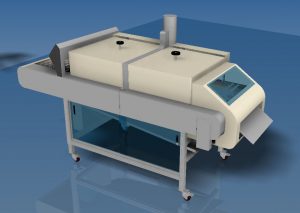 An Amazon personal assistant device is graded on its repairability, and a refurbished version of Samsung’s notorious overheating phone returns to the market in South Korea.
An Amazon personal assistant device is graded on its repairability, and a refurbished version of Samsung’s notorious overheating phone returns to the market in South Korea.

 An Amazon personal assistant device is graded on its repairability, and a refurbished version of Samsung’s notorious overheating phone returns to the market in South Korea.
An Amazon personal assistant device is graded on its repairability, and a refurbished version of Samsung’s notorious overheating phone returns to the market in South Korea.
 On average, popular phones, tablets and laptops are relatively easy to fix, but the market may be trending toward less repairable designs, a recent analysis found.
On average, popular phones, tablets and laptops are relatively easy to fix, but the market may be trending toward less repairable designs, a recent analysis found.
 After receiving $400,000 from the federal government, a New York company is developing a mechanical system that could help e-scrap companies handle printed circuit boards more profitably.
After receiving $400,000 from the federal government, a New York company is developing a mechanical system that could help e-scrap companies handle printed circuit boards more profitably.
 Readers last month gravitated toward negative news, with the largest number of clicks going to stories about a fake R2 certificate, a 15-month prison sentence and industry bankruptcies.
Readers last month gravitated toward negative news, with the largest number of clicks going to stories about a fake R2 certificate, a 15-month prison sentence and industry bankruptcies.
 Australia’s largest city considers curbside e-scrap pickups, and a Hong Kong court sentences a man to jail for e-scrap storage law violations.
Australia’s largest city considers curbside e-scrap pickups, and a Hong Kong court sentences a man to jail for e-scrap storage law violations.
 Oregon regulators have fined Total Reclaim more than $160,000 for allegedly violating hazardous waste laws, but the e-scrap processor denies the allegations and has appealed the penalty.
Oregon regulators have fined Total Reclaim more than $160,000 for allegedly violating hazardous waste laws, but the e-scrap processor denies the allegations and has appealed the penalty.
Chesapeake Paper Systems of Baltimore; Rogue Shred of White City, Ore.; Secure Records Management Systems of Sanford, Maine; Secure Shredding and Recycling of Baton Rouge, La.; Super Save Shredding of Surrey, British Columbia and The Shredding Company of Walkersville, Md. have either achieved or renewed their NAID certifications for physical destruction of hard drives.
Also, Guardian Data Destruction of South Hackensack, N.J. and HiTech Assets of Oklahoma City have either achieved or renewed their NAID certifications for computer hard drive sanitization as well as physical destruction of hard drives.
Visit our archive to view previous editions of the scorecard.
 The federal government provided $96,000 to a New York company to design production-scale equipment to remove integrated circuits and components from printed circuit boards. Continue Reading
The federal government provided $96,000 to a New York company to design production-scale equipment to remove integrated circuits and components from printed circuit boards. Continue Reading
As the industry continues to grapple with collecting and recycling lead-heavy CRT televisions, a facility in the U.K. has become the first of its kind to mechanically recycle the successor to the CRT, flat panel televisions. Continue Reading
New estimates on the time it takes for a flat-panel display TV to enter the U.K. waste stream have been released. Continue Reading
